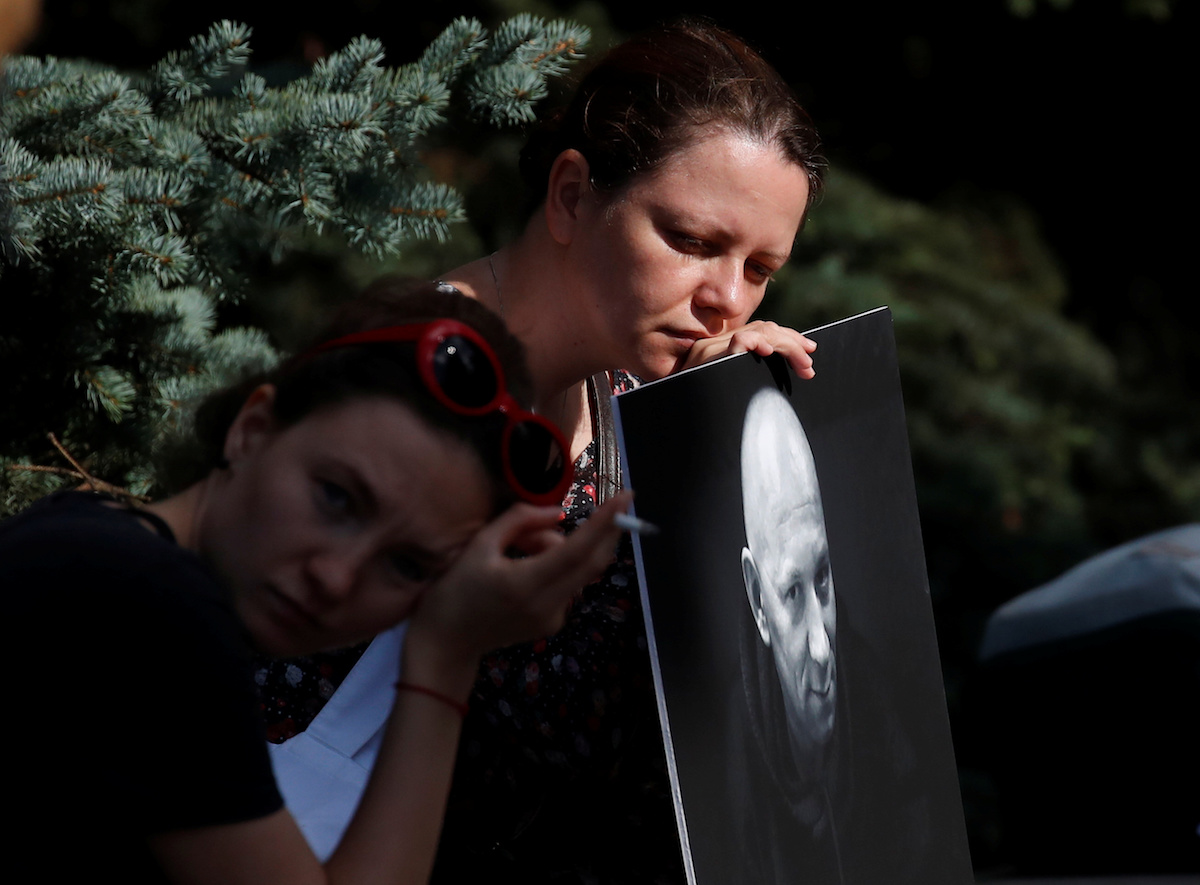Hit on Russian journalists killed in Central African Republic likely put out by Kremlin entourage

Russian journalists Orkhan Dzhemal, Alexander Rastorguev and Kirill Radchenko were killed in the Central African Republic (CAR) in July 2018 on the instructions of people closely connected with the Russian authorities and, possibly, directly with Vladimir Putin, Russian journalists claim.
The investigation published by Russian media outlet Novaya Gazeta lasted six months, and answers questions such as: why did the journalists go on this trip and who, for what, and under what circumstances shot them.
A short summary of their findings:
• Well-known Russian journalist Orkhan Dzhemal and two colleagues killed in Central African Republic
What was the aim of their visit?
The group of Russian journalists went to the CAR in order to look into information about the presence of an organized group of Russian mercenaries in the country.
According to the Russian and international media, Russian mercenaries known as the Wagner Group provide security for the gold mining business of Russian businessman Yevgeny Prigozhin.
Who is Yevgeny Prigozhin?
Yevgeny Prigozhin is a businessman from St Petersburg with a criminal background. He is considered to be a close acquaintance of Russian President Putin.
Prigozhin is widely known in Russia and abroad by the nickname “Putin’s Cook”. He received the nickname for the fact that his company received giant state contracts for the provision of food to Russian law enforcement agencies.
Prigozhin also owns the Internet Research Agency, also widely known under the informal name “Troll Factory”.
This agency is accused of trying to influence the results of the presidential elections in the United States in 2016.
This agency has also been accused of trying to influence the results of the referendum in the UK in 2016, when the UK voted to leave the European Union.
In addition, many international sources confirm that the Wagner Group, controlled by Prigozhin, has sent mercenaries to participate in hostilities in Syria and Ukraine.
What happened in the CAR: the official account
After the murder of the journalists, a group of Russian investigators visited the Central African Republic. They spent three days in the country. The result of their work has not yet been made public.
The Russian Ministry of Foreign Affairs stated that “the journalists died as a result of an attempted robbery”.
What happened in the CAR: the independent investigation
Independent journalists from the Investigation Management Centre investigated the circumstances surrounding the death of their colleagues. Their version of events is as follows:
Orhan Dzemal, Alexander Rastorguev and Kirill Radchenko began an investigation into the Russian military presence in the Central African Republic with the support of the Investigation Management Centre. The centre is funded by businessman Mikhail Khodorkovsky, who lives in London and is a sharp critic of the Russian authorities and Russian President Vladimir Putin.
The same centre organized an independent investigation into the death of Dzhemal, Rastorguev and Radchenko.
The journalists asked their colleague, Moscow-based journalist Kirill Romanovsky, for help with contacts in the Central African Republic.
Romanovsky works for Russian news agency FAN, which is considered to be related to Yevgeny Prigozhin.
The investigation stated that this was the nail in the coffin for Dzemal, Rastorguev and Radchenko.
Romanovsky recommended them to an individual identified as Martin in the CAR. But an independent investigation concluded that such a person never existed, and a local police officer was working closely with the Wagner Group under this name.
The journalists were lured into a trap and shot. The incident was presented as a robbery, according to the authors of the independent investigation.
In support of their version, the journalists of the Investigation Management Centre presented numerous documents and photographs.
Of particular value are the printouts of the contacts of mobile telephone numbers, transmitted to journalists by cell operators.
The authors of the investigation refused to indicate the sources of some of their information for security reasons.



















